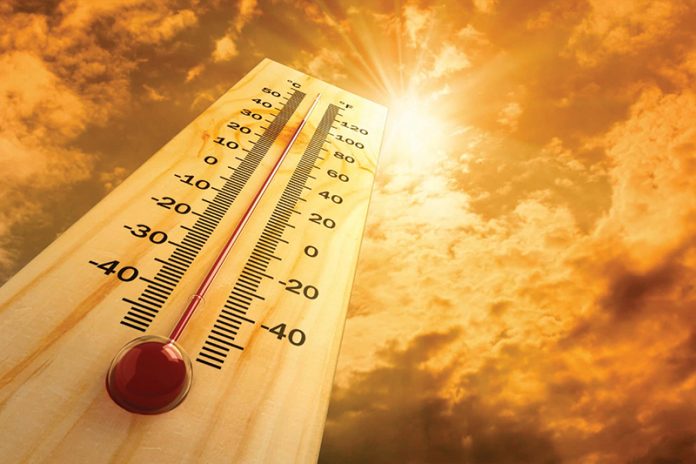A recent study on the impact of high temperatures on the health and well-being of people in Kuwait warned that continued rise in temperatures could lead to deleterious health effects among people in the country, including an increase in rate of deaths due to heat related issues. The study also indicated that by the end of this century, 14 out of every 100 deaths in Kuwait could be due to the harsh climatic conditions brought on by the changes in weather patterns from global climate changes.
The research, published in the journal ‘Environmental Research Letters’, was conducted by Dr. Barak Al-Ahmad, the assistant professor in the Department of Environmental and Occupational Health at the College of Public Health in Kuwait University, in association with international researchers. The research was funded by the Kuwait Foundation for the Advancement of Sciences, in collaboration with the Harvard Center for Climate, Health and Global Environment, and the Yale Center for Health and Climate Change in the United States, and the Berne Institute for Preventive Health Studies in Switzerland.
The environmental study indicated that the pace of temperature rise since the 1990s in Kuwait is ‘unprecedented’ and that the country could witness an increase in average temperatures by 1.8 to 2.6 degrees Celsius by in 2059, and 2.7 to 5.5 degrees Celsius by 2099, which means that the temperature can exceed the 40 degrees Celsius mark during more than four months of the year.
Another point made by the study was that exposure to high temperatures leads to a deterioration in the health condition of those who have chronic diseases, which may lead to death directly or indirectly, and an increase of 5 to 11 percent is expected in the death rate due to the increased heat.
On a related note, data made available last week by the Ministry of Electricity, Water and Renewable Energy (MEW) revealed that the electricity load index on 9 August was the highest reported in Kuwait’s history. The electricity flow of 16,180 megawatts at 2:30pm on Tuesday, 9 August topped the last recorded highest output of 15,800 megawatts on 4 August of this year, and the 15,670 megawatts recorded last year.
Prevailing high temperatures have been blamed for the spurt in electricity load as more people turn on air conditioners and set it for lower temperatures for longer periods. While the temperature recorded on Tuesday was 51 degrees Celsius, a day earlier Kuwait set a new record in high temperatures with the mercury touching 53 degrees celsius in Al Jahra and 52.1 degrees Celsius in Al-Sulaibiya.
Meteorological stations across the country have been recording high temperatures throughout last week. Meanwhile, officials at the meteorological department have warned that the weather will be extremely hot for the rest of the week, with strong northwesterly winds raising dust and reducing horizontal visibility in some areas.

















